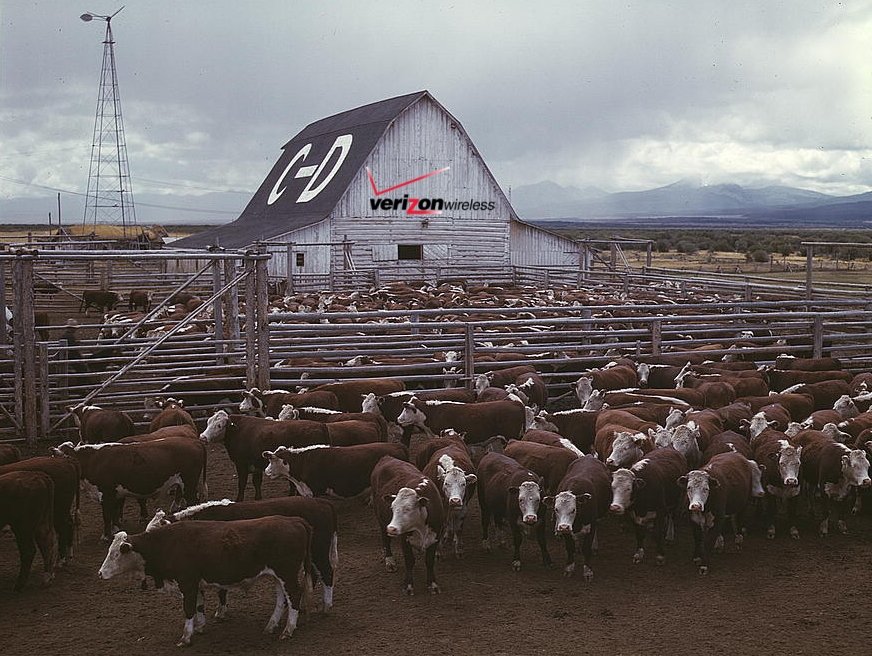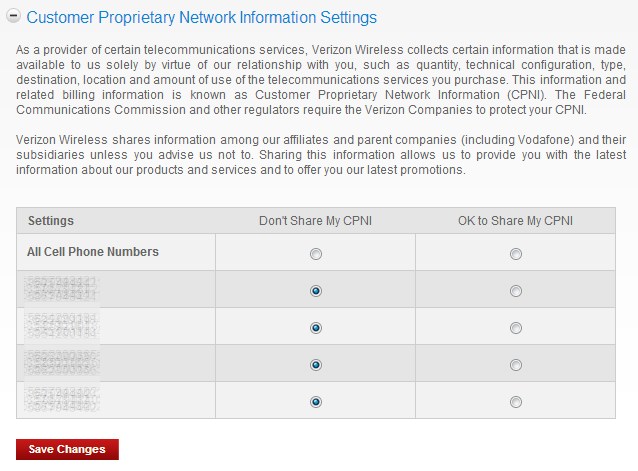
Phillip “I can see the duopoly from my house — why can’t the FCC?” Dampier
The New York Times is pondering whether Americans are paying too much for wireless broadband based on Long Term Evolution (LTE) technology. A new study now offers proof, noting U.S. customers pay three times as much, on average, for each gigabyte of data in contrast to European consumers.
The UK-based mobile industry group GSM Association offers evidence Americans are not getting the lower wireless broadband prices promised by the more advanced, cost-efficient LTE technology, although customers in other parts of the world are seeing savings.
According to the group’s findings, Verizon Wireless customers effectively pay $7.50 per gigabyte of data over the company’s 4G LTE network. That is three times more expensive than the European average of $2.50/GB, and more than 10 times higher than what Swedes pay: $0.63/GB, cheaper than many wired broadband providers’ overlimit fees.
Verizon Wireless’ Brenda Raney tried to defend the discrepancy, claiming that Verizon offers enhanced value bundles with unlimited voice, text, and mobile hotspot service. Having a data-only plan, Raney told the newspaper, would reduce the cost to $5.50/GB.
That is still more than twice as much as what Europeans pay.
So what is the real reason for the enormous price difference?
The wireless industry regularly claims that the vast expanse of the United States means a much larger investment in wireless technology and infrastructure, notably cell towers, to reach customers in suburban and rural areas. European countries, in contract, are much more compact and urban-focused, making infrastructure less costly.
 But that has proven to be nonsense for Sweden’s Tele2, which not only operates a nationwide 4G cellular network in Sweden — a country with its own vast rural regions — but promises to deliver service to 99% of the country by the end of the year and already covers more than 100 Swedish municipalities. They deliver service at a fraction of the cost charged by Verizon. Tele2 remains undeterred by the “rural cost argument,” taking on the world’s largest country — the Russian Federation. It has already acquired 12 regional mobile operators in Russia, expanding service to more than 43 regions with over 22 million customers, and plans additional investments.
But that has proven to be nonsense for Sweden’s Tele2, which not only operates a nationwide 4G cellular network in Sweden — a country with its own vast rural regions — but promises to deliver service to 99% of the country by the end of the year and already covers more than 100 Swedish municipalities. They deliver service at a fraction of the cost charged by Verizon. Tele2 remains undeterred by the “rural cost argument,” taking on the world’s largest country — the Russian Federation. It has already acquired 12 regional mobile operators in Russia, expanding service to more than 43 regions with over 22 million customers, and plans additional investments.
The real reason for the inflated price of service, unsurprisingly, is America’s lack of robust wireless competition, according to GSMA.
Europe has the largest number of competing providers — 38 of 88 operators with LTE technology are in Europe. Even the smallest countries have at least three major competitors. The U.S. has two major competitors, two smaller national carriers, and a dozen or more regional or prepaid operators totally dependent on the larger four to deliver national roaming service.
Until recently, Verizon Wireless had a veritable monopoly on LTE service as AT&T tries to catch up — one of the very rare moments Verizon directly challenged AT&T in advertising that distinguished the coverage differences between the two. These days, AT&T and Verizon mimic one another, often offering identically priced service plans. Customers who want to pay less have to reduce their expectations with smaller competitors that offer reduced coverage.
If you don’t want access to premium wireless broadband, American carriers will also gouge you for lesser 3G service.
 U.S. consumers on two year contract plans spend an average of $115 a month for 3G service, according to a survey conducted by Ernst & Young. In the Netherlands, the average was $51; in Britain, $59 — about half the price.
U.S. consumers on two year contract plans spend an average of $115 a month for 3G service, according to a survey conducted by Ernst & Young. In the Netherlands, the average was $51; in Britain, $59 — about half the price.
The growing mobile phone bill has now reached the point where Ernst & Young’s Jonathan Dharmapalan suggests it is literally interfering with smartphone adoption and causing others to shut off the devices permanently after an experience with bill shock.
“The No. 1 reason for customers’ discontinuing their use of a smartphone service or not taking the option is the fear of overspending,” Dharmapalan said.
The U.S. regulator overseeing the industry that is benefiting enormously from confiscatory duopoly market pricing is the Federal Communications Commission.
A former FCC senior Internet technology adviser attempted to explain away the vast discrepancies in pricing, offering this bit of analysis: Europeans talk and surf less.


 Subscribe
Subscribe







